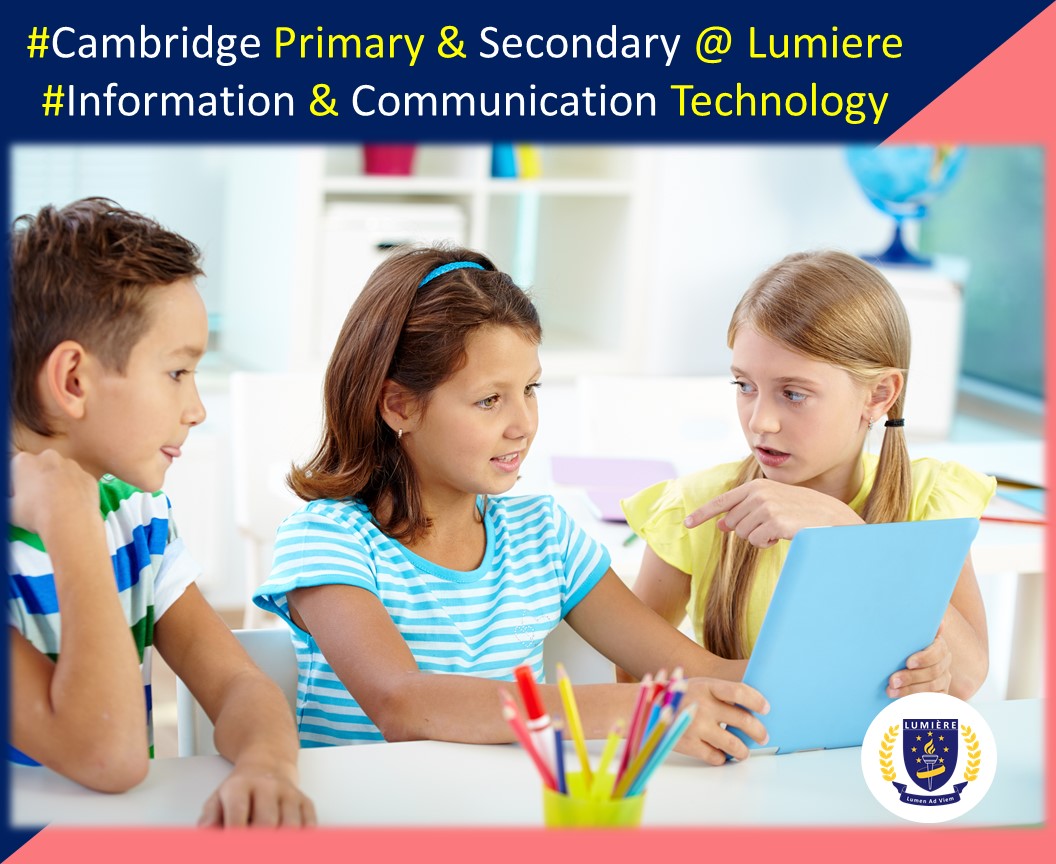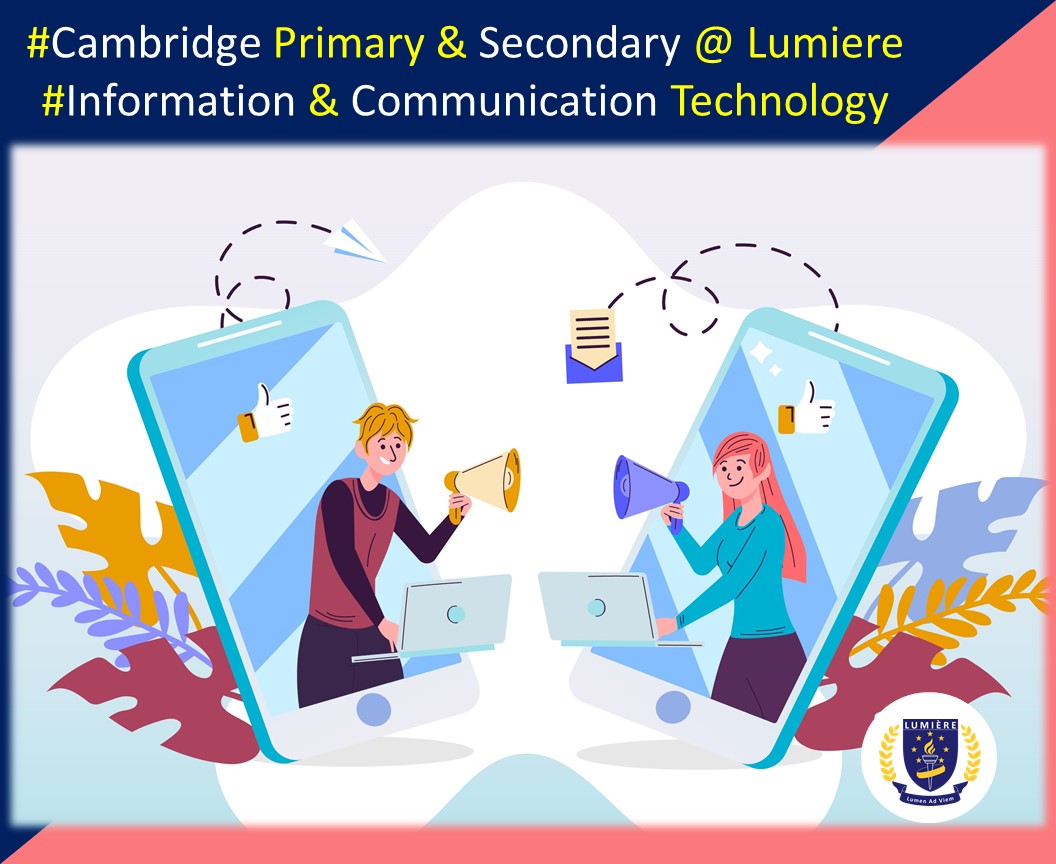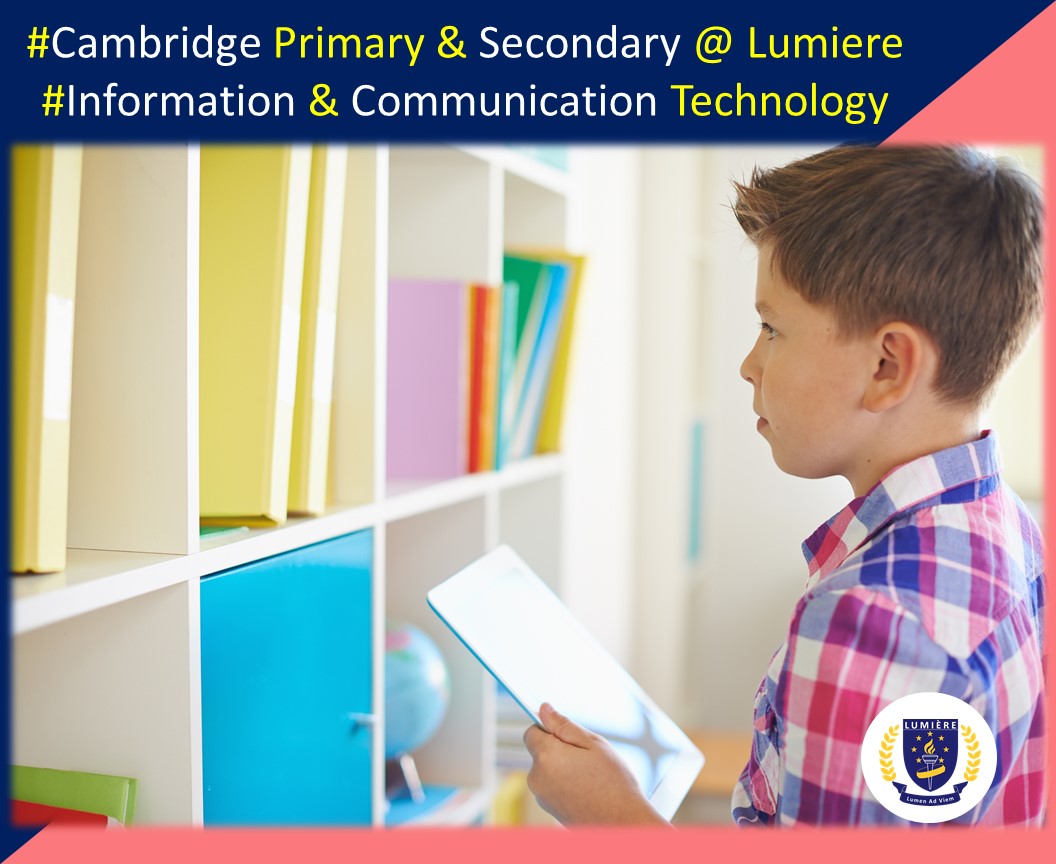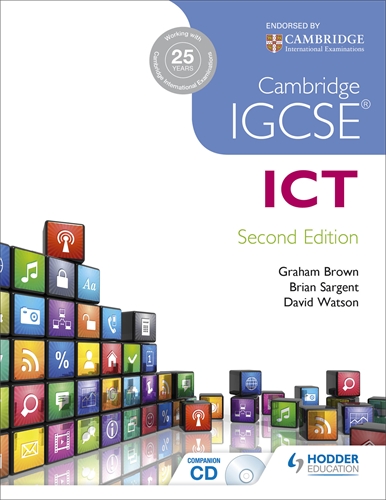
The ever-changing world
The struggle of combating Covid-19 pandemic reminds us that the world we live in is a result of constant change.Out of the many types of changes, changes related to technological in nature have been one of the major ones.Online learning and WFH (Work from Home) are trendy terms as many parts of the world have entered into lockdowns, movement control orders and some other forms of movement restriction.Both adults and students are relying on technology to work and study online.
What is ict?
The term Information & Communication Technology (ICT) means any technology that has to do with information and communication. While our previous generations in the 20th century mostly relied on telegraphs, radio and phone calls to communicate, nowadays communication takes place in many different forms. ICT can be a combination of these different forms of communication comprising of modern electronic gadgets such as personal computers, mobile phones, digital cameras and video cameras for example. How humans and machines process those information has become a subject of study in schools. The usage of computers and smart phones in recent years have enabled students to obtain hands-on experience in studying information processing and how information gets transferred from a source at one location to another.

Why ict?
In today’s society, all of us are the consumers of ICT so that we all can be interconnected with the most effective means. Therefore, ICT subject can be an academic choice as well as a lifestyle choice for many students. In addition, ICT as a subject is increasingly connected to other core subjects studied in Year 10 and Year 11 such as Business Studies, Sociology, Maths and science subjects. In fact, ICT is incorporated as part of Cambridge ICGSE Core Maths textbooks. One of the top 10 skills of tomorrow’s workplace is technology use, monitoring and control. Lumiere Academy’s ICT programme is designed to enable students to master technology, both current and emerging, which is a core 21st-century skill. As it happens to the education system worldwide, application of ICT in Lumiere Academy during the COVID-19 crisis is one of the key success factors for our daily lessons to be carried out smoothly. The relevance of ICT is here to stay.

importance of ict for students
It is important for students to start engaging with ICT so that they learn the latest skills in developing their ICT capability and literacy. Important ICT knowledge and skills can be applied directly or indirectly in their day to day learning. ICT also prepares students for the future society dominated by various advanced ICT developments. With up-to-date ICT knowledge, students will be able to embark on their lifelong learning journey whether they are in school or at home. Relevant skills to pick up are complex thinking, creative problem-solving and collaboration. One of the important skills are higher-order thinking skills, which are related to evaluating, planning, monitoring, and reflecting. Students learn to produce solutions to problems by employing various methods taught in ICT such as troubleshooting, testing, and formulating appropriate strategies for effective problem solving.
In addition, students also enjoy the privilege of accessing Differentiation Instruction with technology. In other words, students learn differently at different paces and styles. Technology provides opportunities for this to occur. Next, what students consider more important is their future career. I am sure every student carefully thinks about what future jobs he / she wants to be in. By working backwards from there, students would be able to find that many jobs would require ICT as a subject in their secondary school education. Of course, subject choices should not be just based on future career choices but ICT definitely provides a wider career path for them in different industries. Future employers will also favour those with the skills to create or adapt to new technology.
Key benefits of cambridge igcse information and communication technology
Cambridge IGCSE™ syllabuses are created especially for international students based on collaboration with schools and teachers worldwide to develop syllabuses that are suitable for different countries, different types of schools and for learners with a wide range of abilities.

Cambridge IGCSE Information and Communication Technology encourages learners to develop lifelong skills, including:
• understanding and using applications
• using Information and Communication Technology (ICT) to solve problems
• analysing, designing, implementing, testing and evaluating ICT systems, ensuring that they are fit for purpose
• understanding the implications of technology in society, including social, economic and ethical uses
• awareness of the ways ICT can help in home, learning and work environments.
The programmes balance a thorough knowledge and understanding of a subject and help to develop the skills learners need for their next steps in education or employment.
For more information on subject choices for your Cambridge IGCSE preparation, please contact us at +601121872197. Click here for our location.

